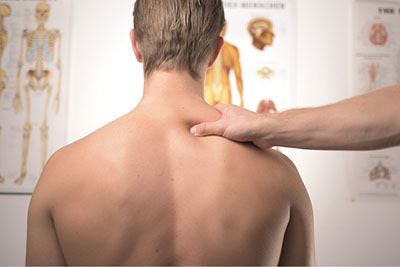Choosing Non-prescription and Over-the-counter Drugs
Guide I-114
Katherine Nixon, D.O., M.S.; and Sonja Koukel
College of Agricultural, Consumer and Environmental Sciences, New Mexico State University
Respectively, Osteopathic Physician, Osteopathic Neuromusculoskeletal Medicine; and Community and Environmental Health Specialist, Department of Extension Family and Consumer Sciences, New Mexico State University. (Print Friendly PDF)
There are many drugs you can buy without a doctor’s prescription (non-prescription drugs). These medicines are sold in drug stores, pharmacies, and grocery stores.
There can be many different names for the same type of medicine. This includes the generic name of the drug as well as brand names of the same medicine. For example, “ibuprofen” is the generic drug name for the brand name drugs Motrin and Advil.
This guide provides information about some medicines you can buy without a prescription. These medicines are called over-the-counter medicines or OTCs. This guide will help you choose the best OTCs for your needs. It also provides information on how to take them safely.

© Arne9001 | Dreamstime.com
![]() Caution: OTCs can cause harm when used along with medicines that your doctor instructs you to take. Herbs and supplements, such as vitamins and minerals, can also cause problems when taken with medicines. To be safe, always follow the directions on the package. If you don’t understand something about the directions, contact your doctor or pharmacist and ask them to help you.
Caution: OTCs can cause harm when used along with medicines that your doctor instructs you to take. Herbs and supplements, such as vitamins and minerals, can also cause problems when taken with medicines. To be safe, always follow the directions on the package. If you don’t understand something about the directions, contact your doctor or pharmacist and ask them to help you.
Over-the-counter medicines covered in this guide include:
-
Pain relievers
-
Allergy medicines
-
Sleeping aids
-
Cold and cough medicines
-
Medicines that help with upset stomach, diarrhea, constipation, and heartburn
1. Pain Relievers
Two main types of OTC pain relievers are available. The two types treat different signs of illness. The two types are:
- Non-steroidal anti-inflammatory drugs (NSAIDS)
- Acetaminophen
Non-steroidal anti-inflammatory drugs (NSAIDS)
What non-steroidal anti-inflammatory drugs (NSAIDS) do
NSAIDS help to reduce pain, fever, and swelling (inflammation). They are a good choice if you have any of the following problems:
- Fever
- Headache
- Sore muscles
- Arthritis
- Menstruation (monthly periods)
- Common cold symptoms
- Toothaches
- Backaches
- Swelling (inflammation) that includes redness, heat, or pain and affects how well you are able to perform daily activities
Examples of brand name (and generic drug name) OTC NSAIDS include:
- Advil, Cedaprin, Midol, and Motrin (ibuprofen)
- Aleve (naproxen)
- Bayer, Bufferin, and Ecotrin (aspirin)

© Jesper Aggergaard | Unsplash
NSAIDS – Side effects
Sometimes when you take OTC drugs, you may experience unwanted problems, or side effects. Common side effects of NSAIDS are:
- Stomach ulcers (open sores in the stomach)
- Upset stomach or a sick feeling in the stomach (nausea)
- Throwing up (vomiting)
- Diarrhea or loose stools
- Increased risk of heart attack and stroke
- Note: This is not a side effect with aspirin. Aspirin can be used as a blood thinner to lower the risk of blood clots in people with certain heart conditions (Medlineplus, 2015).
- Kidney damage
- High blood pressure (hypertension)
- Ringing in the ears (tinnitus)
Acetaminophen
What acetaminophen drugs doAcetaminophen works by changing the way the body feels pain and by cooling the body (reducing fever). It does not help reduce swelling (inflammation), so it is different from NSAIDS.
Examples of brand name OTC drugs that contain acetaminophen include:
- Actifed
- Anacin
- Alka-Seltzer Plus
- Contac
- Excedrin (all Excedrin products)
- Midrin
- Robitussin
- Sinutab
- Sudafed
- TheraFlu
- Tylenol
- Vicks NyQuil and DayQuil
 Caution:
Caution:
- Never take two medicines that contain acetaminophen at the same time. Many medicines, such as cough syrup, can also contain acetaminophen. Read all drug labels to be sure you don’t take too much.
- If you take too much acetaminophen, it can cause serious liver damage and even death.
- If you are not sure about the drugs you are taking, ask your doctor or pharmacist to help you.
Acetaminophen – Side effects
This drug usually has no side effects. If you notice any changes, contact your doctor or pharmacist right away.
2. Allergy Medicines (Antihistamines)
Allergy medicines are antihistamines. They treat problems such as runny nose, hives and rashes (red, itchy swellings on your skin), sneezing, and itchy, watery eyes (KidsHealth, 2018).
What allergy medicines (antihistamines) do
Over-the-counter allergy medicines help with these problems:
- Seasonal allergies that occur at different times of the year. For instance, some people suffer with allergies during the spring when the flowers and trees begin to bloom.
- Common colds.
- Upset stomach or a sick feeling in the stomach caused by movement (motion sickness). For instance, some people get sick to their stomach when traveling in a car, on a boat, or in an airplane.
The antihistamines listed here help treat these problems. They also help control upset stomach and vomiting. They are good to take when you have motion sickness. Examples of brand name (and generic drug name) OTC drugs used to treat allergy symptoms include:
- Benadryl, Nytol, and Sominex (diphenhydramine)
- Chlor-Trimeton and Actifed Cold (chlorpheniramine)
- Dimetapp (brompheniramine)
- Unisom and Vicks NyQuil (doxylamine)
 Caution:
Caution:
- In elderly people, the medicines listed above can cause confusion, seeing things that are not actually there (hallucinations), or feelings of being overly excited (nervous). Stop using the medicine if any of these problems happen.
- The elderly can be at an increased risk of falling when taking antihistamines.
- Do not drink alcohol when taking antihistamines. Mixing alcohol with antihistamines can make it difficult to think, concentrate, and make good decisions.
- Do not drive when taking antihistamines because the medicine can make you less aware of what is happening around you.
- Antihistamines can build up in the body. This means that the medicines may not work as well over time as they did when you first started taking them.
- If you need to take this medication longer than 2–4 weeks, please discuss with a physician.
Allergy medicines (antihistamines) – Side effects
- Feeling dizzy or confused
- Feeling sleepy
- Dry mouth
- Headache
- Feeling nervous, excited, or irritable
- Changes in vision, such as blurry vision
- Loss of appetite or not wanting to eat
The following list of brand name (and generic drug name) antihistamines are newer OTC medicines. They may be a good choice if you get drowsy, feel confused, or have trouble thinking when you take the OTC allergy medicines listed above. Be aware that the problems or side effects listed in the Caution section can still happen.
- Zyrtec (cetirizine)
- Claritin (loratadine)
- Allegra (fexofenadine)
3. Sleeping Aids
Over-the-counter sleeping aids contain antihistamines. Information on antihistamines can be found in the Allergy Medicines (Antihistamines) section of this publication.
What sleeping aids do
Sleeping aids help you when you have trouble falling asleep or staying asleep at night. Insomnia is a term used for these symptoms.
Examples of brand name (and generic drug name) OTC sleeping aids include:
- ZzzQuil and Benadryl (diphenhydramine)
- Equate and Unisom (doxylamine)
 Caution:
Caution:
- Do not drink alcohol when taking sleeping aids. Mixing alcohol with sleeping aids can make it difficult to think, concentrate, and make good decisions.
- Do not drive when taking sleeping aids because the medicine can make you less aware of what is happening around you.
- Sleeping aid medicines can build up in the body. This means that the medicines may not work as well over time as they did when you first started taking them.
Sleeping aids – Side effects
The side effects for sleeping aids are the same as allergy medicines, which can be found in the Allergy Medicines (Antihistamines) section of this publication.
4. Medicines That Help With Cold, Cough, Stuffy Nose, and Fluid in the Nose, Throat, or Chest
Over-the-counter medicines are available when you have:
- signs of a cold
- a cough
- a stuffy nose that makes it hard to breathe
- too much fluid (mucus) in your nose, throat, or chest
Cold and cough medicines
Signs of a cold include:
- Sneezing
- Itchy and watery eyes
- Coughing
- Runny or stuffy nose
- Headaches
Cold and cough medicines include antihistamines. Information on antihistamines can be found in the Allergy Medicines (Antihistamines) section of this publication.
Examples of brand name (and generic drug name) OTC drugs used to treat cold and cough symptoms include:
- Chlor-Trimeton and Actifed Cold (chlorpheniramine)
- Unisom and Vicks NyQuil (doxylamine)
- Note: NyQuil products may contain 10% alcohol. There are products that do not have alcohol. Check the label for information (Capetta, 2019).
 Caution:
Caution:
- Check the medicine label before giving cold and cough medicines to children. Some medicines are not safe for children. The label will tell you if your child is old enough to take the medicine.
- Do not give adult medicines to children because they can be too strong. This can result in an overdose and can lead to death.
- If your cough lasts longer than 3 weeks, please consult your physician.
Cold and cough medicines – Side effects
Side effects for cold and cough medicines are the same as allergy medicines, which can be found in the Allergy Medicines (Antihistamines) section of this publication.
Medicines used for stopping or slowing down coughs
The common cold, the flu, allergies, and other conditions can cause coughing. There are brand name drugs that can stop or slow down coughing spells. These drugs contain the generic drug dextromethorphan, which works on the cough center of the brain. It stops or slows down the feeling you get of wanting to or needing to cough.
Note: These drugs do not treat the cause of the illness. They do not help you get well faster.
Examples of brand name (and generic drug name) OTC drugs used to stop or slow down coughs include:
- Vicks DayQuil Cough (dextromethorphan)
- Vicks Formula 44 Custom Care Dry Cough (dextromethorphan). Read the medicine label for any cautions when using this product.
 Caution:
Caution:
- Check the medicine label before giving cough and cold medicines to children. Some medicines are not safe for children. The label will tell you if your child is old enough to take the medicine.
- Do not give adult medicines to children because they can be too strong. This can result in an overdose and can lead to death.
- If your cough lasts longer than 3 weeks, please consult your physician.
Medicines used for stopping or slowing down coughs – Side effects
- Upset stomach or a sick feeling in the stomach (nausea)
- Throwing up (vomiting)
- Feeling dizzy or confused
- Feeling sleepy
- Feeling very calm
- Seeing things that are not actually there (hallucinations)
Medicines used to help with stuffy nose and breathing (decongestants)
What decongestants do
Over-the-counter drugs are available to help when you have difficulty breathing through your nose. This can be caused by the common cold or allergies.
Colds and allergies cause the blood vessels in the nose to swell. Decongestants work by making the blood vessels smaller. This helps reduce the amount of fluid (mucus) in the nose. By making the blood vessels smaller, the breathing pathways feel more open and breathing is easier.
Note: These drugs do not treat the cause of the illness. They do not help you get well faster.
Examples of brand name (and generic drug name) OTC decongestant drugs include:
- Sudafed Head Congestion (phenylephrine)
- Sudafed Sinus Congestion (pseudoephedrine)
Decongestants – Side effects
- High blood pressure (hypertension)
- Fast heart rate
- Not able to relax, or feeling very active or nervous
- Unable to fall asleep or stay asleep (insomnia)
- Unable to urinate or urinating very little
- Worrying (anxiety)
- Upset stomach or a sick feeling in the stomach (nausea)
- Throwing up (vomiting)
- Feeling weak
- Headache
Medicines used to help with fluid (mucus) buildup in the chest
When fluid, or mucus, builds up around the lungs, it can be hard to breathe. This buildup can result in chest pain, dizziness, runny nose, and coughing. This condition is called chest congestion.
What medicines used to help with fluid buildup in the chest do
Medicines that help with fluid buildup in the chest work to control the signs of the illness, such as chest congestion. They also thin the fluid (mucus) so that it is easier to cough up the fluid and clear the lungs.
Note: These drugs do not treat the cause of the illness. They do not help you get well faster. The drugs work by drying up the fluids in the body, so drink plenty of water.
Examples of brand name (and generic drug name) OTC drugs used to relieve chest congestion include:
- Mucinex (guaifenesin)
- Vicks DayQuil (guaifenesin)
 Caution:
Caution:
- Check the medicine label before giving cough and cold medicines to children. Some medicines are not safe for children. The label will tell you if your child is old enough to take the medicine.
- Do not give adult medicines to children because they can be too strong. This can result in an overdose and can lead to death.
- If you have cardiac (heart) problems, please discuss with a physician before starting any of these medications.
Medicines used to help with fluid buildup in the chest – Side effects
- Dry mouth
- Headache
- Upset stomach or sick feeling in the stomach (nausea)
- Throwing up (vomiting)
- Kidney stones
- Diarrhea or loose stools
- Not having regular bowel movements or the stool is hard to pass (constipation)
5. Medicines Used to Help With Upset Stomach, Diarrhea, Constipation, and Heartburn (Gastrointestinal Medicines)
Note: “Gastrointestinal” is a medical word used to describe the stomach, the small intestine, and the large intestine as a group. You may see it shortened to “GI” or “GI tract” (Shiel, 2018).
Medicines used to treat upset stomach caused by movement (motion sickness)
Medicines used to treat motion sickness often contain antihistamines. Information on antihistamines can be found in the Allergy Medicines (Antihistamines) section of this publication.

© Vanveenjf | Unsplash
What medicines used to treat upset stomach caused by motion sickness do
Antihistamines can treat or prevent these motion sickness symptoms:
- Upset stomach or a sick feeling in the stomach (nausea)
- Throwing up (vomiting)
- Feeling dizzy or confused
Examples of brand name OTC drugs used to treat an upset stomach caused by motion sickness are listed below. All the medicines listed contain meclizine, which is an antihistamine.
- Antivert
- Bonine
- Dramamine Less Drowsy
- D-Vert
 Caution:
Caution:
- Be careful if you drive because the medicine can make you less aware of what is happening around you.
- Do not drink alcohol. Mixing alcohol with antihistamines can make it harder to think, concentrate, and make good decisions.
- Be safe. Check with your doctor or pharmacist before taking these medicines with other drugs.
- If you have any of the following symptoms, stop taking these drugs and contact your doctor:
-
-
Throwing up for a long time (vomiting)
-
Blood in vomit
-
Pain or swelling in the stomach area
-
Being confused
-
Having trouble breathing
-
Fast heart rate
-
Fever
-
Diarrhea or loose stools
-
Severe headache
-
Stiff neck
-
If you think you might be pregnant
-
Medicines used to treat upset stomach caused by motion sickness – Side effects
- Feeling sleepy
- Dry mouth
- Throwing up (vomiting)
- Feeling tired
- Headache
Medicines used to help with diarrhea
Drugs that are used to stop or slow diarrhea, or loose stools, are called antidiarrheal medicines.
What antidiarrheal medicines do
When you have diarrhea, you may feel as though you need to go to the bathroom often. Antidiarrheal medicines work to increase the time between bathroom visits. They help to slow down how fast things move through your intestines or bowels.
Note: Antidiarrheal medicines do not cure the diarrhea.
Examples of brand name (and generic drug name) OTC antidiarrheal medicines include:
- Imodium (loperamide)
-
- Use this medicine only when needed. Do not exceed the recommended dose.
- Kaopectate and Pepto-Bismol (bismuth subsalicylate)
-
- These medicines reduce swelling (inflammation), reduce stomach acid, and stop the bacteria and viruses that cause diarrhea from growing in the stomach and intestines. Note: This drug can cause black-colored stool.
 Caution:
Caution:
- You may get a virus, or a “stomach bug,” that causes diarrhea. Along with the diarrhea, you may have a fever, be throwing up food, be sick to your stomach, or have cramps (pains) in your stomach or intestines.
- Do not take antidiarrheal medicines if you have a “stomach bug.” Your body needs to get rid of the bacteria that is causing the diarrhea. If you stop the diarrhea, it can make the condition worse. Talk with your doctor if you think you have a bacteria or virus (American Academy of Family Physicians, 2018).
Antidiarrheal medicines – Side effects
Loperamide can cause bloating, constipation, dry mouth, and loss of appetite.
Generally, healthy adults don’t often suffer from side effects of these medicines. If you notice any changes, contact your doctor or pharmacist right away.
Medicines used to help with constipation (laxatives)
When you are constipated, it means that you are not having regular bowel movements or that the stool is hard to pass. Drugs used to help treat constipation are laxatives.
What laxatives do
Laxatives increase how often you have a bowel movement and how easy the stool is to pass.
There are different types of laxatives to help with different problems. Examples of brand name OTC laxatives are listed below, along with the problems they are used to treat.
- Colace, Correctol Softgels, and Fleet Sof-Lax are stool softeners (emollients). They work by softening stools to make them easier to pass. Stool softeners need a good amount of fluids, such as water, to work. Drink plenty of fluids when taking stool softeners.
- Ex-Lax, Senokot, and senna are called stimulants. Stimulants work in the intestines to cause a bowel movement. Caution: Your body can start to rely on stimulants to pass stool if you use them too much. If you continue to have problems with constipation, talk with your doctor.
- MiraLAX, milk of magnesia, and magnesium sulfate (or Epsom salt) are osmotics. These laxatives work by taking water from the body and bringing it to the small intestine and colon. More water increases the size and shape of the stool, making it easier to pass. Be certain to drink plenty of water when taking osmotics.
- Mineral oil is a lubricant. Mineral oil works by putting a slippery film on the stool and on the inside of the intestine. This film keeps the stool from drying out and makes it easier to pass. Lubricants can take up to eight hours to work. If you don’t see any changes after a week, you might try a different type of laxative (Roland, 2016).
- Metamucil and Citrucel are fiber laxatives. These types of laxatives work by sucking up liquid in the intestines. The liquid is used to form a stool that is easy to pass.
Laxatives – Side effects
- Upset stomach or a sick feeling in the stomach (nausea)
- Gas in the stomach or intestines
- Stomach pain or cramps
Medicines used to help with heartburn
Heartburn can feel like a burning in your chest, throat, or the area between the chest and the hips (upper abdomen). Heartburn happens when acid from the stomach goes back up into the throat (esophagus). When you have heartburn, you can sometimes taste food or the stomach acid fluid in the back of your mouth (U.S. Food and Drug Administration, 2018).
What medicines used to help with heartburn do
Over-the-counter medicines used for heartburn help to stop or decrease the burning feeling. The medicines work by cutting the amount of acid in the stomach. Examples of brand name (and generic drug name) OTC heartburn medicines include:
- Prilosec OTC (omeprazole)
- Nexium 24HR (esomeprazole)
- Pepcid Complete and Pepcid AC (famotidine)
- Rolaids (calcium carbonate)
- Tums (calcium carbonate)
- Zantac (ranitidine)
-
- NOTE (September 2019): The U.S. Food and Drug Administration (FDA) reported finding N-nitrosodimethylamine (NDMA) at low levels in Zantac products. NDMA can cause cancer. The FDA is not calling for individuals to stop taking Zantac (ranitidine) at this time. As a precaution, choose one of the other OTC medicines for heartburn symptoms.
 Caution:
Caution:
- Do not mix alcohol when taking medicines for heartburn because this can cause damage to the stomach.
- Do not take calcium carbonate (Rolaids, Tums) for more than two weeks. Talk with your doctor if the heartburn continues.
Medicines used to help with heartburn – Side effects
- Headache
- Feeling sleepy
- Upset stomach or a sick feeling in the stomach (nausea)
- Mild diarrhea or loose stools
- Not having regular bowel movements or the stool is hard to pass (constipation)
- Gas in your stomach or intestines
- Stomach pain or cramps
- Dry mouth
- Unable to sleep or stay asleep (insomnia)
- Feeling dizzy
- Throwing up (vomiting)
- Burping
- Not wanting to eat, loss of appetite
- A metal taste in the mouth
Important warning about heartburn
Heartburn can be one of the first signs of a heart attack. If you have any of these signs, go to the emergency room right away.
- Pain, tightness, or pressure in the chest area
- Pain that goes down the left arm
- Squeezing or aching feelings in the chest or arms; these feelings can spread to your neck, jaw, or back
- Feeling sweaty
- Feeling sick all over
Women may have signs of a heart attack that do not include chest pain. These include (Mayo Clinic, 2019):
- Feeling uncomfortable in the neck, jaw, shoulder, upper back, or the area between the chest and the hips (abdomen)
- Having trouble breathing
- Pain in one or both arms
- Upset stomach or a sick feeling in the stomach (nausea)
- Throwing up (vomiting)
- Feeling lightheaded or dizzy
- Feeling very tired
IN CASE OF EMERCENCY CALL
The New Mexico Poison and Drug Information Center:
1-800-222-1222
Further Resources
For more information about any of the medicines discussed in this guide, visit the Food and Drug Administration website “Understanding Over-the-Counter Medicines,” available at https://www.fda.gov/Drugs/ResourcesForYou/Consumers/BuyingUsingMedicineSafely/UnderstandingOver-the-CounterMedicines/default.htm.
You can also visit the MedlinePlus website at https://medlineplus.gov/ for detailed information on OTC and prescription medications. Click the “Drugs & Supplements” link for a searchable database.
References
American Academy of Family Physicians. 2018, January 18. Anti-diarrheal medicines: OTC relief for diarrhea. Available at https://familydoctor.org/antidiarrheal-medicines-otc-relief-for-diarrhea/
American Academy of Family Physicians. 2019, July 21. Antihistamines: Understanding your OTC options. Available at https://familydoctor.org/antihistamines-understanding-your-otc-options/
Berkeley Wellness. 2013, February 1. Ask the experts: Aspirin and tinnitus. Available at https://www.berkeleywellness.com/self-care/over-counter-products/article/aspirin-and-tinnitus
Capetta, A. 2019, June 14. Alcohol in NyQuil: Here’s what you should know. Available at https://howtoadult.com/alcohol-in-nyquil-heres-what-you-should-know-4885210.html
KidsHealth. 2018. Dictionary: Histamine. Available at https://kidshealth.org/en/parents/histamine.html
Mayo Clinic. 2019, October 4. Heart disease in women: Understand symptoms and risk factors. Available at https://www.mayoclinic.org/diseases-conditions/heart-disease/in-depth/heart-disease/art-20046167
MedlinePlus. 2015. Drugs, herbs and supplements. Available at https://medlineplus.gov/druginformation.html
Roland, J. 2018, December 10. How to relieve constipation with mineral oil. Available at https://www.healthline.com/health/digestive-health/mineral-oil-for-constipation#1
Shiel, Jr., W.C. 2018, December 12. Medical definition of gastrointestinal. Available at https://www.medicinenet.com/script/main/art.asp?articlekey=3555
Sudafed.com. 2017. Buying our products. Available at https://www.sudafed.com/know/buying-sudafed-ingredients
Trella, J.D. 2017, November 14. Use with caution: Cough and cold medicine safety tips. Available at https://www.chop.edu/news/health-tip/use-caution-cough-and-cold-medicine-safety-tips
U.S. Food and Drug Administration. 2018. Over-the-counter (OTC) heartburn treatment. Available at https://www.fda.gov/Drugs/ResourcesForYou/Consumers/ucm511944.htm
U.S. Food and Drug Administration. 2019, September 12. Zantac (ranitidine): Safety information – NDMA found in samples of some ranitidine medicines. Available at https://www.fda.gov/safety/medical-product-safety-information/zantac-ranitidine-safety-information-ndma-found-samples-some-ranitidine-medicines
Yeung, E. 2006, November 21. Should I take Tylenol, Advil or aspirin? The Science Creative Quarterly. Available at https://www.scq.ubc.ca/should-i-take-tylenol-advil-or-aspirin/
For Further Reading
Guide I-108: Recommended Vaccinations for Adults
pubs.nmsu.edu/_i/I108/
I-109: Food Recalls and Alerts: What You Should Know
pubs.nmsu.edu/_i/I109/
CR-693: Take Charge of Your Diabetes: Tips for Healthy Living with Diabetes
pubs.nmsu.edu/_circulars/CR693/
Brand names appearing in publications are for product identification purposes only. No endorsement is intended, nor is criticism implied of similar products not mentioned. Persons using such products assume responsibility for their use in accordance with current label directions of the manufacturer.

Sonja Koukel is Assistant Professor and Extension Community and Environmental Health Specialist in the Department of Extension Family and Consumer Sciences. She earned her B.S. at NMSU and her M.S. and Ph.D. at Texas Tech University. Her Extension programs focus on health and wellness—physical, mental, spiritual, and environmental.
To find more resources for your business, home, or family, visit the College of Agricultural, Consumer and Environmental Sciences on the World Wide Web at pubs.nmsu.edu/.
Contents of publications may be freely reproduced, with an appropriate citation, for educational purposes. All other rights reserved. For permission to use publications for other purposes, contact pubs@nmsu.edu or the authors listed on the publication.
New Mexico State University is an equal opportunity/affirmative action employer and educator. NMSU and the U.S. Department of Agriculture cooperating.
March 2020 Las Cruces, NM


